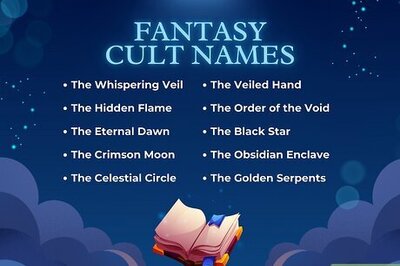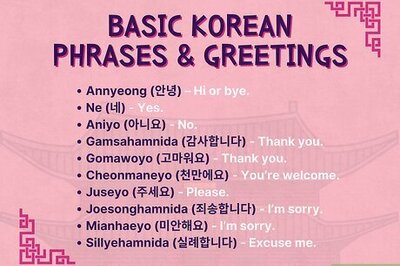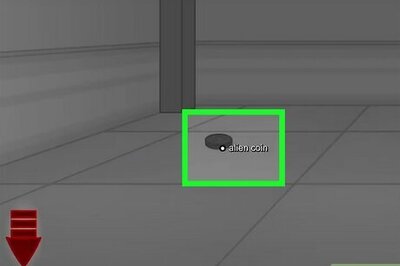
views
The Uttar Pradesh Police this week gunned down Asad, the son of dreaded gangster and former MLA Atiq Ahmed, in an encounter in Jhansi, UP. Asad was a key conspirator in the Umesh Pal murder case and was caught on camera flashing a gun after the crime. Two policemen were also killed. Umesh Pal was one of the key witnesses in a case against Atiq Ahmed. The encounter, according to police, was done in self-defence by the authorities, when Asad and his aide Ghulam opened fire at the cops. UP ADG (Law & Order) Prashant Kumar said in a press conference that all the guidelines laid down by the Supreme Court in PUCL vs State of Maharashtra (2014) and a magisterial inquiry shall follow after Asad’s encounter. The police say they followed the ‘due process of law’.
In 2020, dreaded gangster Vikas Dubey died in a UP Police encounter when his car overturned. A special panel led by Justice BS Chouhan exonerated the Uttar Pradesh Police in the matter. The state police got a clean chit under the ‘due process of law’.
‘Encounters’ are often celebrated in the public and political domain and frowned upon by the judiciary. They are termed ‘extrajudicial killings’ by the court of law. There is a political incentive in this quick ‘justice’. The conscience of the public was finally satisfied when 1993 Mumbai blasts convict Yakub Memon was hanged. It took twenty-one years. The public outrage was assuaged when the rapists and killers of Nirbhaya were finally hanged in 2020. It took seven years. The case dominated headlines, led to statutory reform of laws pertaining to sexual assault, and did not fade from the memory of the media. Despite this, the process was slow and tardy. It’s called the ‘due process of law’.
There are crores of pending cases in our country. No commentary can plausibly explain the drudgery and struggle to secure a conviction law. Atiq Ahmed’s tryst with courts is a commentary not just on the judicial system but also on the political will to book a criminal like him. Different governments and political parties over three decades benefitted from the likes of Atiq. His survival was due to the system that allowed criminals like him to fester. And the ‘due process of law’ never came to the rescue of the ‘rule of law’.
Justice, in our country, is denied because it’s mostly delayed. Instant street justice serves the public outrage and frustration over slow tardy judicial delays. The alleged extrajudicial killings in Manipur and the intervention of the Supreme Court in 2017 are a grim reminder of when security agencies misuse the weapon and power handed to them to protect the rule of law. The encounter of the four men accused in the Hyderabad gang rape was termed fake by a special panel. The Supreme Court-appointed panel recommended that the cops involved be tried for murder. We would never know for sure if the four accused were the actual culprits of the heinous crime. In the public conscience, justice was rescued from the process of law. Due process often becomes the punishment for an individual seeking justice.
Indeed, fake encounters threaten due process. But witnesses refusing to testify in courts, witnesses being gunned down in broad daylight, and mafias allowed to run their gang from inside jail are a bigger threat to the rule of law. Unfortunately dreaded criminals like Atiq Ahmed and many others like him being able to evade the law of the land is not an anomaly but almost a certainty in the present criminal justice system. The law, procedure, and Supreme Court judgments on fake encounters are all well-placed, well-worded, and well-intentioned, but till they are actually implemented in each case with precision and certainty, the real objective would never be met.
We would not have the debate around fake encounters in India if criminal justice was not on crutches. Otherwise, why else would the public endorse such actions and call them ‘justice’? Justice has been delayed for far too long.
Read all the Latest India News here




















Comments
0 comment